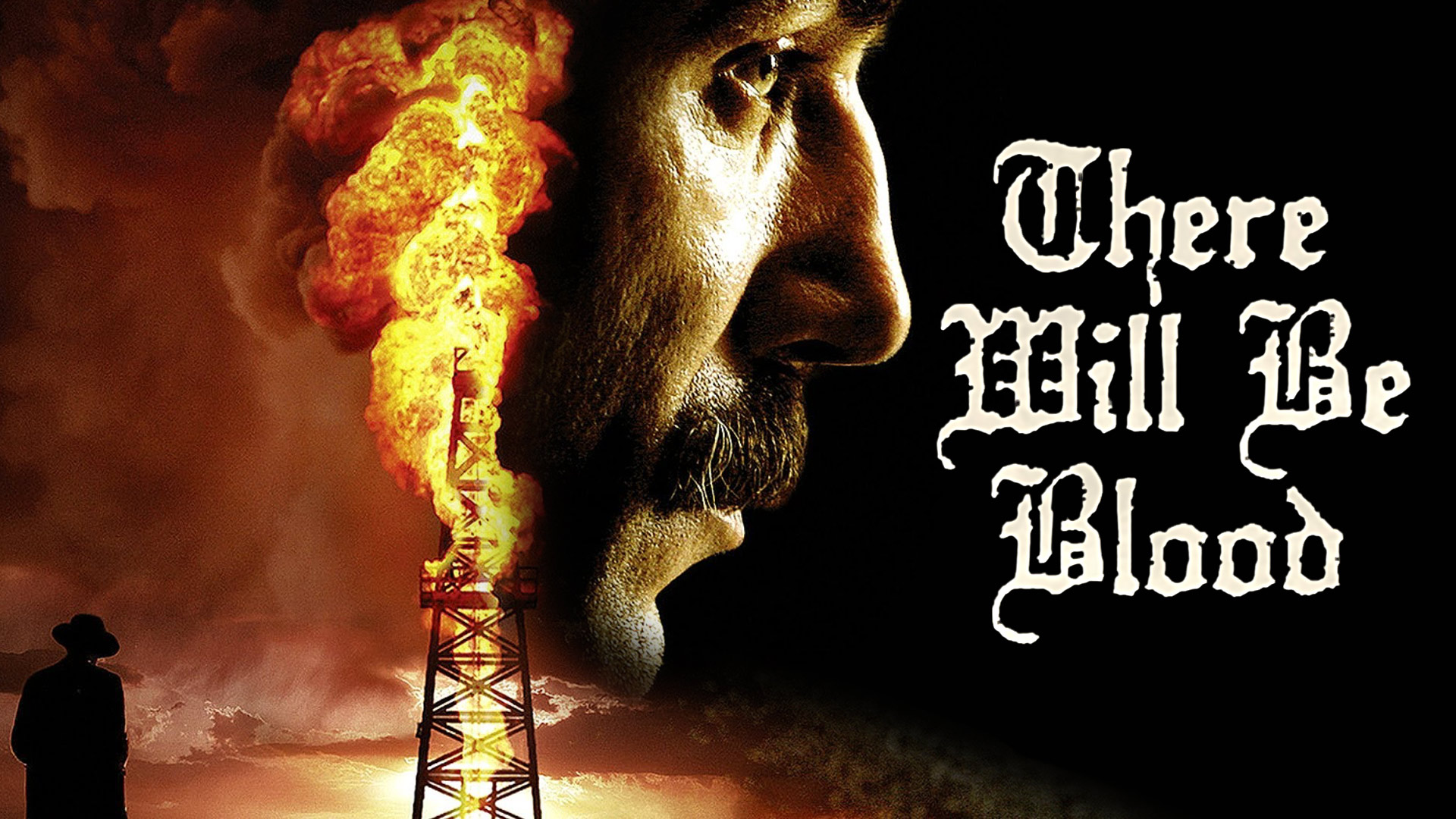
“There Will Be Blood” is a gripping and critically acclaimed movie that has left a lasting impact on audiences since its release. Directed by Paul Thomas Anderson and starring Daniel Day-Lewis in an Oscar-winning performance, this intense drama takes us into the dark world of oil tycoons and their relentless pursuit of wealth and power. Set in the early 20th century, the film explores themes of greed, ambition, and the corrupting nature of unchecked capitalism. With its compelling storyline, atmospheric cinematography, and powerful acting, “There Will Be Blood” has earned its place as a modern classic. In this article, we delve into 44 fascinating facts about the movie, shedding light on its production, behind-the-scenes trivia, and the impact it had on the film industry and audiences alike.
Key Takeaways:
- “There Will Be Blood” is a gripping movie that explores the dark side of ambition and the corrupting influence of wealth. It showcases the power of non-verbal communication and the impact of greed on individuals.
- The film’s haunting atmosphere, powerful performances, and exploration of human nature make it a timeless cinematic experience. It delves into the psychological toll of success and serves as a cautionary tale about the perils of unchecked ambition.
Oil, Money, and Madness
Released in 2007, “There Will Be Blood” is a gripping drama directed by Paul Thomas Anderson. Set in the early 20th century, the film explores the ruthless pursuit of wealth and power in America’s oil industry.
Academy Award Winner
The movie was a critical and commercial success, receiving eight Academy Award nominations and winning two, including Best Actor for Daniel Day-Lewis’ mesmerizing performance as the lead character, Daniel Plainview.
Historical Inspiration
The story of “There Will Be Blood” draws inspiration from Upton Sinclair’s novel “Oil!” which was published in Although the film differs from the book in many ways, it retains the essence of Sinclair’s exploration of capitalist corruption.
Impeccable Cinematography
The film is visually stunning, thanks to the brilliant cinematography of Robert Elswit. The wide shots of the desolate oil fields and the play of light and shadow add to the atmosphere and intensity of the narrative.
A Tale of Ambition
There Will Be Blood” delves deep into the dark psyche of its protagonist, Daniel Plainview, showcasing his relentless ambition and the lengths he is willing to go to build his empire.
The Enigmatic Daniel Plainview
Daniel Plainview is a complex character with shades of both hero and villain. His transformation from a hardworking prospector to a cunning and ruthless oil tycoon is captivating to watch.
Iconic Opening Sequence
The movie starts with a nearly 15-minute sequence that is devoid of any dialogue. This powerful opening, accompanied by Jonny Greenwood’s haunting score, sets the tone for the film and draws the audience into its world.
The Power of Silence
Many scenes in “There Will Be Blood” are characterized by minimal dialogue, relying instead on the actors’ expressions and body language to convey emotions. This creates a sense of tension and adds to the film’s dramatic impact.
Paul Dano’s Dual Role
Actor Paul Dano plays two different characters in the film: Eli Sunday, a zealous preacher, and Paul Sunday, Eli’s more reserved twin brother. Dano’s nuanced performances add depth to the story and underline the themes of faith and hypocrisy.
The Infamous “I Drink Your Milkshake!” Scene
One of the most memorable moments in the movie is Plainview’s explosive confrontation with Eli Sunday. The line “I drink your milkshake!” has become an iconic quote, representing the character’s dominance and thirst for power.
An Intense Soundtrack
The film’s score, composed by Jonny Greenwood of Radiohead, perfectly complements the visuals and enhances the overall cinematic experience. It is a mixture of dissonant strings and haunting melodies that heighten the tension and unease felt throughout the movie.
The Lengthy Production Period
“There Will Be Blood” went through a long and challenging production process, taking around 60 days to shoot. The meticulous attention to detail and the commitment of the cast and crew contributed to the film’s authenticity and realism.
The Enigmatic Ending
The movie culminates in a chilling and enigmatic final scene, leaving viewers with lingering questions and open for interpretation. It is a thought-provoking conclusion that encapsulates the complex themes explored throughout the film.
Praise for Daniel Day-Lewis
Daniel Day-Lewis’ performance in “There Will Be Blood” has been widely hailed as one of the greatest in cinematic history. He seamlessly disappears into the character of Daniel Plainview, bringing him to life with compelling intensity.
The American Dream Turned Nightmare
There Will Be Blood” serves as a cautionary tale about the perils of unchecked ambition and the devastating consequences it can have on individuals and society. It portrays the dark underbelly of the American Dream.
The Language of Greed
The dialogue in the movie is sharp, evocative, and rich in subtext. The exchanges between characters often revolve around power, money, and the lengths they are willing to go to protect their interests.
Daniel Day-Lewis’ Method Acting
Daniel Day-Lewis is known for his immersive method acting techniques, and his approach to portraying Daniel Plainview was no exception. He spent months researching the oil industry, adopting a distinct physicality and voice for the character.
An Ode to Classic Filmmaking
There Will Be Blood” pays homage to the masterpieces of cinema’s Golden Age, particularly the works of directors like John Ford and Orson Welles. The film embraces a sweeping and epic style reminiscent of those classic movies.
The Realistic Portrayal of the Oil Industry
The movie provides a gritty and realistic depiction of the oil industry’s early days, shedding light on its cut-throat nature, environmental impact, and the exploitation of land and labor.
The Directorial Vision of Paul Thomas Anderson
Paul Thomas Anderson’s direction in “There Will Be Blood” is masterful, creating a visually stunning and thematically rich film. He skillfully explores the dark depths of human nature and the corrupting influence of wealth and power.
The Dynamic Relationship Between Daniel Plainview and Eli Sunday
The complex dynamic between Daniel Plainview and Eli Sunday serves as the core of the film. Their encounters and power struggles form the basis of a gripping narrative that keeps viewers on the edge of their seats.
The Transformation of the American Frontier
The movie captures the transition of America’s frontier from an untamed wilderness to a playground for ruthless capitalists. It reflects the changing landscape of the nation and the moral decay that comes with unchecked industrialization.
The Abundance of Symbolism
There Will Be Blood” is laden with symbolic imagery throughout its runtime. From the recurrent motif of oil as a destructive force to the parallels drawn between religion and capitalism, the film invites deep analysis and interpretation.
The Influence of Silent Cinema
Paul Thomas Anderson drew inspiration from silent films of the early 20th century, incorporating elements of their visual storytelling and reliance on expressive gestures and facial expressions.
A Haunting Atmosphere
The movie’s atmospheric and bleak setting, combined with its haunting score, creates a sense of unease and tension that remains palpable throughout the film.
The Long and Ambitious Opening Shot
The opening shot of “There Will Be Blood” is a continuous tracking shot that spans several minutes, introducing the audience to the harsh landscape and establishing the film’s tone and mood.
Critique of Capitalism
The film serves as a scathing critique of capitalism and the moral compromises it demands. It exposes the greed and exploitation inherent in the pursuit of wealth and power.
Cinematic Collaborations
There Will Be Blood” marks the fifth collaboration between director Paul Thomas Anderson and actor Daniel Day-Lewis. Their partnership has resulted in several critically acclaimed films.
The Impact of Fatherhood
The theme of fatherhood plays a significant role in the film, highlighting the complicated relationship between Daniel Plainview and his son, H.W. The portrayal of paternal bonds in the movie adds an emotional layer to the narrative.
The Psychological Toll of Success
The movie explores the psychological toll that success and ambition can have on individuals. It delves into the dark recesses of Daniel Plainview’s mind as he grapples with his inner demons.
Historical Accuracy
While the film is a fictional narrative, it accurately depicts the socioeconomic and political climate of the time period it is set in, capturing the essence of early 20th century America.
The Lack of Redemption
One of the central themes in “There Will Be Blood” is the absence of redemption. The characters are driven by their own desires, and there is little room for moral redemption in the unforgiving world of the film.
The Influence of Classical Music
The film’s musical score draws inspiration from classical music composers like Arvo Pärt, as well as the dissonant compositions of composers like Krzysztof Penderecki. This adds an eerie and haunting quality to the overall soundtrack.
A Deep Dive into the Human Psyche
“There Will Be Blood” delves into the psychology of its characters, exploring themes of obsession, greed, and the destructive forces that can consume individuals when driven by ambition.
The Strength of Non-Verbal Communication
The film demonstrates the power of non-verbal communication, relying on visual cues and subtleties to convey emotions and heighten dramatic tension.
The Role of Religion
Religion plays a central role in the film, with the character Eli Sunday embodying fervent religiosity and the manipulation that can come with it. The movie raises questions about faith and the exploitation of religious beliefs.
The Evolution of Daniel Plainview
Daniel Plainview’s journey throughout the film is marked by a gradual descent into moral bankruptcy. His transformation from an aspiring prospector to a morally bankrupt tycoon is a compelling character arc.
The Impact of Greed
One of the central themes in “There Will Be Blood” is the corrosive nature of greed. It explores how the insatiable desire for wealth and power can corrupt individuals and erode their humanity.
The Mastery of Paul Thomas Anderson
Paul Thomas Anderson’s direction in “There Will Be Blood” displays his mastery of crafting compelling narratives and exploring complex characters. The film is a testament to his skill as a filmmaker.
The Cinematic Power of Silence
The film masterfully utilizes moments of silence to build suspense and create a sense of unease. The absence of dialogue in crucial scenes adds to the film’s dramatic impact.
The Significance of Sound Design
The meticulous sound design in “There Will Be Blood” adds depth and richness to the film’s atmosphere. From the crunch of footsteps on the barren landscape to the roaring sound of drilling, every sound is carefully crafted.
Exploring the Dark Side of Humanity
The movie delves into the darkest corners of human nature, examining the destructive impulses that can drive individuals. It is a chilling exploration of the depths of human depravity.
The Legacy of “There Will Be Blood”
The film’s impact continues to reverberate in the years since its release. It has earned its place as a cinematic classic, with its thoughtful exploration of themes and powerful performances.
An Enduring Cinematic Experience
“There Will Be Blood” is not a movie that can easily be forgotten. Its themes, characters, and visual storytelling come together to create an enduring cinematic experience that lingers long after the credits roll.
Conclusion
There Will Be Blood is a masterclass in filmmaking that captivates audiences with its powerful storytelling, stunning cinematography, and exceptional performances. With the talented Paul Thomas Anderson at the helm and Daniel Day-Lewis giving a career-defining performance, this movie has solidified its place as a modern classic.
From its gripping narrative to its thought-provoking exploration of themes such as greed, power, and the dark side of the American dream, There Will Be Blood keeps viewers on the edge of their seats from beginning to end. The film’s meticulous attention to detail and atmospheric score further elevate the viewing experience, leaving a lasting impression on anyone who watches it.
There Will Be Blood is a must-watch for any cinephile, as it represents the pinnacle of cinematic achievement. Its compelling story, exceptional performances, and stunning visuals make it a timeless masterpiece that will continue to be revered for years to come.
FAQs
1. Is There Will Be Blood based on a true story?
No, There Will Be Blood is not based on a true story. However, it is loosely inspired by Upton Sinclair’s novel “Oil!”
2. Who directed There Will Be Blood?
There Will Be Blood was directed by Paul Thomas Anderson, known for his distinct and visionary filmmaking style.
3. What is the significance of the title?
The title “There Will Be Blood” alludes to the intense and violent nature of the movie, as well as the themes of greed and the destructive pursuit of power.
4. Who plays the lead role in There Will Be Blood?
Daniel Day-Lewis delivers an extraordinary performance as Daniel Plainview, the ambitious oil man at the center of the story.
5. What awards did There Will Be Blood receive?
There Will Be Blood was critically acclaimed and received numerous accolades, including two Oscars for Best Actor (Daniel Day-Lewis) and Best Cinematography.
6. How long is the movie?
The runtime of There Will Be Blood is approximately 2 hours and 38 minutes.
7. In what year was There Will Be Blood released?
The film was released in 2007.
8. What is the overall tone of There Will Be Blood?
There Will Be Blood has a dark and brooding tone, reflecting the morally complex and intense journey of its protagonist.
If you're fascinated by the exploration of greed in cinema, check out our article on "42 Facts about the movie Wall Street." For a deep dive into the history of American cinema, don't miss "39 Facts About The Movie In The Heat Of The Night." And if you can't get enough of the brilliant mind behind "There Will Be Blood," read "9 Captivating Facts About Paul Thomas Anderson."
Was this page helpful?
Our commitment to delivering trustworthy and engaging content is at the heart of what we do. Each fact on our site is contributed by real users like you, bringing a wealth of diverse insights and information. To ensure the highest standards of accuracy and reliability, our dedicated editors meticulously review each submission. This process guarantees that the facts we share are not only fascinating but also credible. Trust in our commitment to quality and authenticity as you explore and learn with us.


